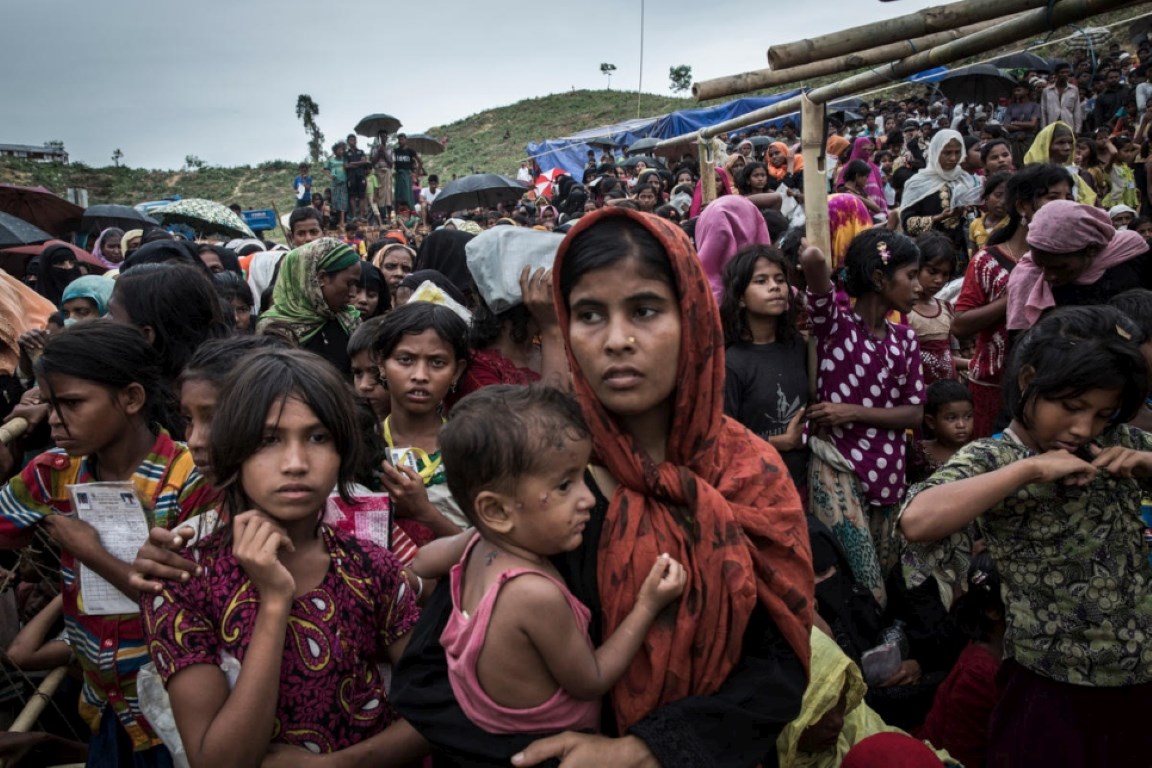Myanmar to sign MoU for Rohingya Repatriation
June 2, 2018 | Expert Insights

Nearly 700,000 Rohingya refugees now residing in Bangladesh may be repatriated back into the Rakhine State when the Memorandum of Understanding (MoU) between Myanmar, UN High Commission for Refugees and UN Development Programme is signed.
Background
The western coastal Rakhine state of Myanmar has faced turmoil since the 1982 Citizenship Act left scores of Rohingya Muslims stateless in the predominantly Buddhist country. When Burma received independence it did not list the Rohingyas among the country’s 135 ethnic groups. Waves of refugees have been fleeing Myanmar for Bangladesh as the Burmese military instigated violence in 2012 and 2015, culminating in ethnic cleansing in August of 2017. Rohingya refugees reported killings, burnings, looting and rape, in response to militant attacks on security forces.
Houses and crops have been set on fire while the government remains tight-lipped on the situation. Restrictions on movement and access to healthcare have further added to their woes. Those who survive the arduous walk or ferry to the shores of Bangladesh are met with poor living conditions and an uncertainty about their future. Many South East Asian countries including Malaysia, Indonesia and Thailand are said to have denied asylum to stranded boats of refugees.
The international community has expressed its concern over the plight of the Rohingya Muslims and the escalating violence. International condemnation led to the first UN public meeting on the matter in eight years. UN Secretary-General Antonio Guterres said that the violence in the region has "spiraled into the world's fastest-developing refugee emergency, a humanitarian and human rights nightmare." He added, “We've received bone-chilling accounts from those who fled, mainly women, children and the elderly.”
Analysis
According to the UNHCR Press Release, “The MoU, once signed, will affirm the Myanmar Government’s commitment to work with UNHCR and UNDP to find a solution for the Rohingya population, in line with the recommendations of the Advisory Commission on Rakhine State.”
While the UN has been banned from entering the territory, UNHCR and UNDP plan to enter into an agreement with the Myanmar government for safe and voluntary return of the Rohingyas. The terms of the MoU allow for the UNHCR and UNDP to access Rakhine State with areas of refugee origin and possible return so as to carry out protective measures. Proof of identification, not equal to citizenship, will be provided which has not been met positively for Rohingya activists fighting for full citizenship.
The first batch of refugees verified for return will have to reside in temporary camps under the protection of Myanmar military. Some fear their return will be to an “open prison” while others demand the return of seized land and compensation for extensive damages. However, with no citizenship, the Rohingyas face a series of legal hurdles if they are to move to their places of origin with papers either being destroyed or deemed illegal.
Indian ad-hoc policy on refugees if converted into an established framework will accelerate humanitarian effort, however, New Delhi has remained silent while threatening to deport 40,000 Rohingyas living within the borders on grounds of security concerns. No links have been established between Rohingyas and active terrorist outfits, but reports say a minute fraction have illegally been trafficked or recruited by the Islamic State and Lakshar-e-Toiba (LeT). In Assam, Muslims and Bangladeshi migrants are facing issues with citizenship which can be highlighted in lieu of these recent developments. India must now acknowledge strategic interests in Myanmar, and border states, by playing an active long-term role in assisting Bangladesh and the UN in their efforts.
Assessment:
Our assessment is that the conditions in the Rohingya settlements, which include the world’s largest single refugee camp, are abysmal and the monsoon rains would make their life miserable. We believe that most Rohingyas would go back only if they are given Myanmar citizenship, as well as the freedom of movement and religion. This is going to be the challenge as Myanmar’s government has not given any indication that they are willing to accept these demands.








Comments